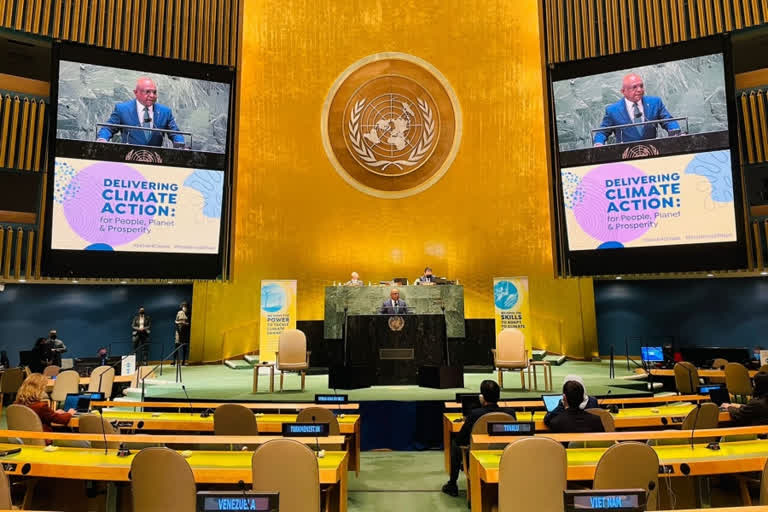New York:Bridging the financial and technical gaps that will limit global warming was the focus of a high-level debate in the UN General Assembly in New York on Tuesday. The day-long meeting comes just ahead of the COP26 climate change conference for countries to deliver on the promise of keeping global temperature rise to 1.5 degrees Celsius, in line with the 2015 Paris Agreement.
In his opening remarks, Assembly President Abdulla Shahid highlighted the "blunt realities" of climate impacts such as rising sea levels, which are threatening island nations like his homeland, the Maldives. However, as the architect of a "Presidency of Hope", Mr. Shahid stressed that countries can confront these challenges if they work together.
"Today’s event will not solve climate change, only action will," he said, speaking from the rostrum. "Today’s event is about reminding people of what we are capable of if we act in concert, trust in science, and intelligently mobilize the many resources we have at our disposal."
Scientists are unequivocal about the causes of the climate emergency. Human activities have warmed the atmosphere, ocean and land, driving ice melt and leading to unprecedented and rapid changes, said Valérie Masson-Delmotte from the Intergovernmental Panel on Climate Change (IPCC), the UN body that has published a series of ground-breaking but alarming reports on the issue.
"Human-caused climate change is already affecting every region on Earth in many ways, strengthening the frequency and intensity of extreme events such as heatwaves, heavy precipitation events, droughts and fire weather," she said, speaking via videolink. "The changes we already experience will increase with further warming."
The UN and its General Assembly, where all 193 Member States are represented, were created so that countries could unite to address common crises such as climate change, Secretary-General António Guterres told the meeting.
COP26 in Glasgow will be a moment of truth, he added, because despite the alarm bells, governments’ actions so far "simply do not add up to what is so desperately needed."
The world currently remains on a track for global temperature rise of 2.7 degrees Celsius, far from the 1.5-degree goal, or what Mr. Guterres called “the only liveable future for humanity.”
He said the situation can only be reversed by reducing greenhouse gas emissions by 45 per cent this decade when compared to 2010 levels, and net-zero emissions by mid-century. Leaders must also come to COP26 with bold targets and new concrete policies.
